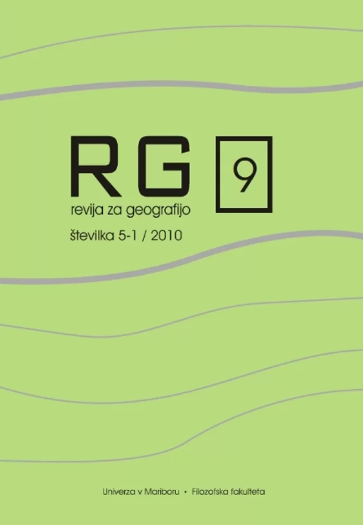Novi izzivi za trajnostni razvoj podeželja v 21. stoletju (3. del)
DOI:
https://doi.org/10.18690/rg.5.1.3790Ključne besede:
trajnostni razvoj podeželja, ruralne preobrazbe, ruralne skupnostiPovzetek
Koncept razvoja podeželja je v zadnjih desetletjih doživel pomembno preobrazbo, ki je šla z roko v roki s spremembami na podeželju in novimi zahtevami družbe. Hitre spremembe v mednarodnem gospodarstvu - globalizacija, izboljšane komunikacije in zmanjšani stroški prevoza, spreminjajoči se trgovinski vzorci za blago, kot tudi pojav pomembnih nekmetijskih dejavnosti v podeželskih regijah – postavljajo podeželske regije pred nekatere očitne grožnje, pa tudi pred pomembne priložnosti. V tem kontekstu odločevalci vse bolj prepoznavajo, da je treba tradicionalne sektorske politike posodobiti in v nekaterih primerih postopno opustiti ter nadomestiti z bolj primernimi instrumenti. Posebno skrb vzbuja skromen pozitiven vpliv, ki ga imajo kmetijske subvencije na splošno gospodarsko uspešnost, celo v skupnostih, ki so najbolj odvisne od kmetijstva. Če se kmečke družine vse bolj zanašajo na zaposlitev zunaj kmetij, bo gospodarski uspeh podeželskih skupnosti odvisen od razvoja novih gospodarskih sektorjev.
Prenosi
Literatura
Bakirci M. (2010). Negative Impacts of Forest Fires on Ecological Balance and Environmental Sustainability: Case of Turkey . Journal for Geography, 5(1), 15-32. https://doi.org/10.18690/rg.5.1.3794
Bojnec Štefan, & Knific K. (2010). Agricultural Households in Mountain Areas in Pre- and Post-accession Slovenia. Journal for Geography, 5(1), 33-42. https://doi.org/10.18690/rg.5.1.3799
Vaishar A., & Zapletalová J. (2010). Sustainable Development of the Moravian Countryside. Journal for Geography, 5(1), 43-54. https://doi.org/10.18690/rg.5.1.4003
Surd V. (2024). Restraints and Opportunities of the Romanian Rural Areas. Journal for Geography, 5(1), 55-66. https://doi.org/10.18690/rg.5.1.4004
Nurković R. (2010). Influence of Tertiary Activities on Transformation of the Rural Settlements in Bosnia and Herzegovina. Journal for Geography, 5(1), 67-74. https://doi.org/10.18690/rg.5.1.4005
Potočnik Slavič I. (2010). Neoendogenous In- and Output of Selected Rural Areas: the Case of Economic Cycles in Slovenia. Journal for Geography, 5(1), 75-90. https://doi.org/10.18690/rg.5.1.4006
Kobayashi K., & Harada C. (2010). Conservation of Rice Terraces in Japan - Roles of the Sakaori Rice Terrace Conservation Association. Journal for Geography, 5(1), 91-100. https://doi.org/10.18690/rg.5.1.4007
Firmino A. (2010). New Challenges for the Organic Farmers in India – Tourism, Spices and Herbs. Journal for Geography, 5(1), 101-113. https://doi.org/10.18690/rg.5.1.4008
Majkovič D., & Borec A. (2010). Are consumers in Slovenia concerned about the mountain quality food. Journal for Geography, 5(1), 115-124. https://doi.org/10.18690/rg.5.1.4009
Boulay A. (2010). Organic Farming: A Solution to Agriculture Crisis or a “New” Trend to Healthy Eating? An Overview of French and British Farmers. Journal for Geography, 5(1), 125-134. https://doi.org/10.18690/rg.5.1.4010
Horvat U. (2010). Health Resorts and Their Importance for the Development of Less Developed Areas in Slovenia . Journal for Geography, 5(1), 147-159. https://doi.org/10.18690/rg.5.1.4012
Prenosi
Objavljeno
Številka
Rubrika
Licenca
Avtorske pravice (c) 2010 Lučka Lorber

To delo je licencirano pod Creative Commons Priznanje avtorstva 4.0 mednarodno licenco.
